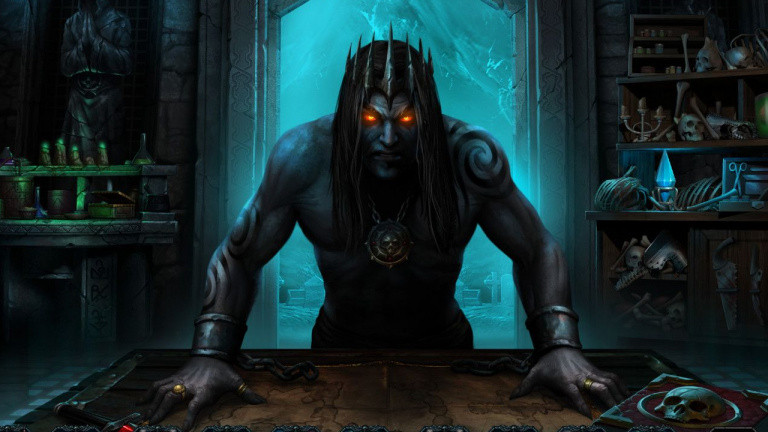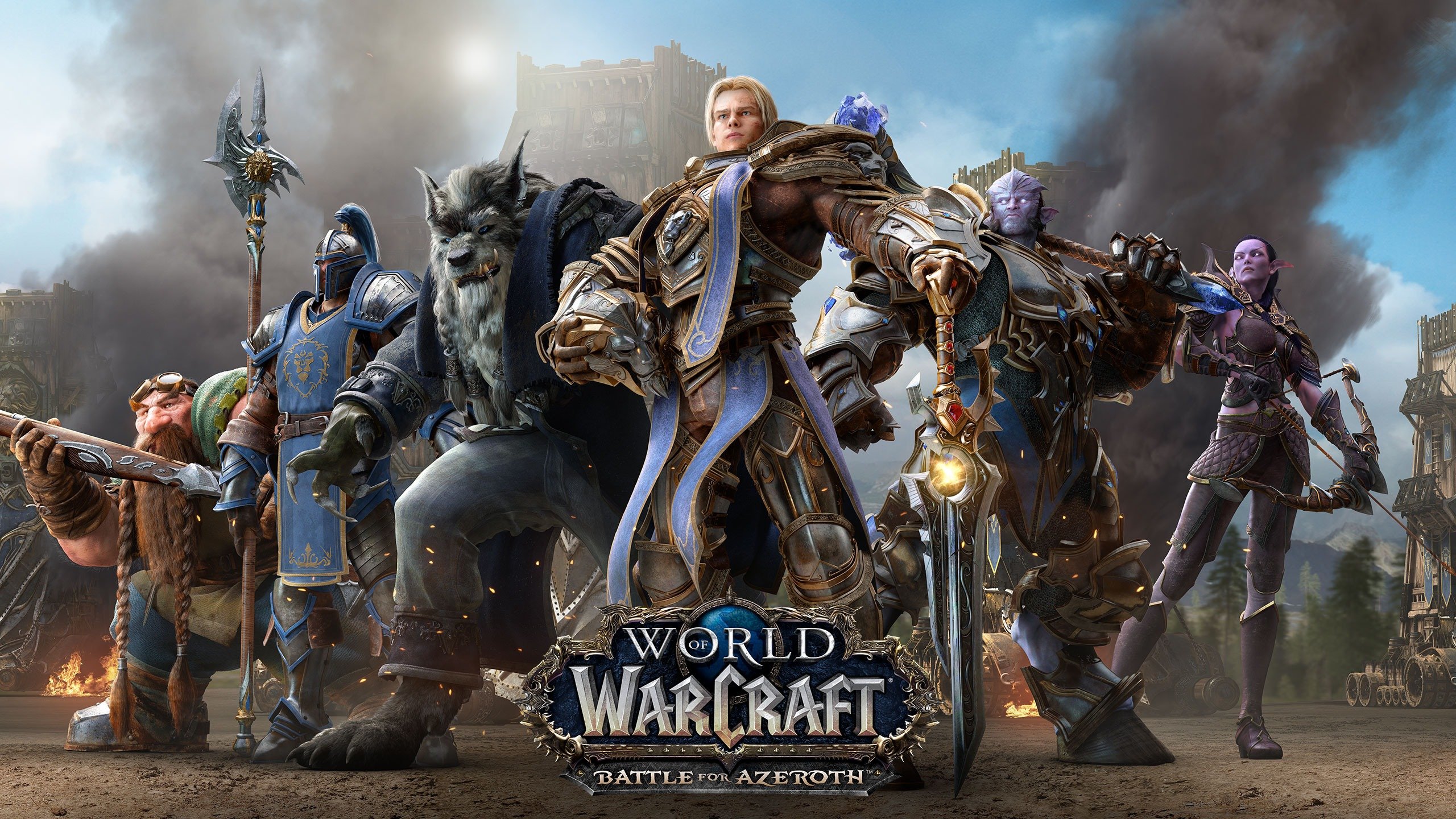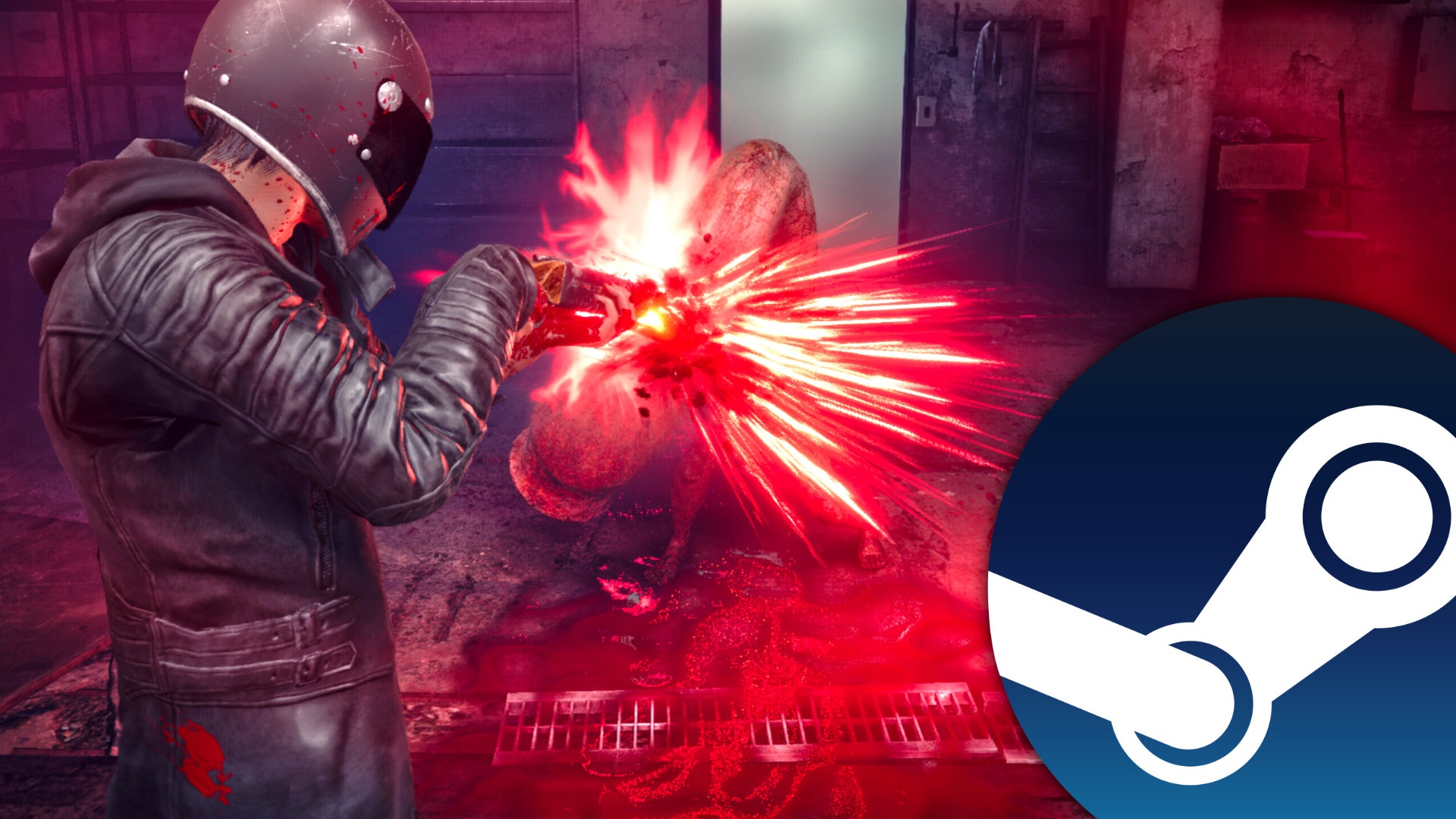PC Mac Linux
While there are many players who still strive in the excellent, but terrible Darkest Dungeon to make their way through the alleys of the game, a multitude of clones of the title of Red Hook have emerged, with more or less success and inspiration. Iratus: Lord of the Dead invited himself this month in the niche of the tactical RPG and, if he takes over the elements which made the charm of his model, he manages however to offer himself a personality and a philosophy of his own.
Iratus: Lord of the Dead Trailer
Welcome to unknown territory
We can never say it enough: it is too rare to give the player the sweet pleasure of embodying the villain of the story. This is what Unfrozen's title proposes, by staging Iratus, a necromancer imprisoned for years and who, in his quest for revenge, manages to free himself and seeks to arrange a path to the surface to establish his domination on the world and plunge it into darkness. The magician will not be alone to achieve his ends and will be able, using the pieces of corpses recovered from the terrassed enemies, build units whose variety will increase as he accomplishes certain objectives.

In fact, those who have already settled in Darkest Dungeon will feel at home. Taking place in turn and in the presence of groups of 4 units, the battles are backed by similar refreezes as Red Hook, namely that each of your henchmen can only use their skills if they are placed at a certain position of the group. In addition to the physical damage that it is possible to inflict, each opponent (and never your units) has a stress bar which you can choose to decrease also with the associated spells, unlike Darkest Dungeon which , gave a lot of hassle to the player with the madness that could overturn a fight if it grabbed your troops. The stress bar of Iratus: Lord of the Dead can produce the same effects as in his model, by forcing your opponents to hit each other, pass their turn or suffer a large statistical penalty. Once emptied, the gauge may involve a one shot at the next damage. Juggling physical damage and stress damage brings a certain tactical depth to the game, since it will be necessary to study the type of enemies encountered and to form your group in a balanced manner on the distribution of the types of damage.
Classic and well-balanced confrontations

The Iratus clashes are therefore rather technical and require a certain degree of reflection, precipitation is often fatal and your units, you suspect, are subject to permanent death. However, the complementarity between the different classes is well studied and it seems that the long early access phase of the game has helped to shape a rather successful balancing. Certain classes will certainly inflict bonuses on enemies, but others increase their critical hits if their target is haloed with a beneficial effect, for example. You will therefore have to play with your knowledge of each unit to shape the most optimized group possible. In addition, in addition to the minions, Iratus will accompany the troops and will be able once per turn to cast a consuming spell of his mana, spells which you will unlock with the wire of the experience gained during the successful combats. 18 classes will be available over time, once the players have fulfilled several unlocking prerequisites. Rest assured, the prerequisites in question are for the most part easily achievable and come naturally as you progress, only two classes are only available once normal mode has ended. And the condition to complete the game is to make your way through the 5 major levels of Iratus, levels materialized in the form of a map whose path to take is at your discretion. You can thus embrace at a glance the route that you consider optimal to get to the boss who sanctions each end of level, possibly dodging elite fights, but by depriving yourself at the same time of certain chests or fountains that allow you to restore health or gain artifacts that boost the statistics of your units or those of Iratus and his spells.
All this is done from your underground hideout which, like the Darkest Dungeon sanctuary, offers you the possibility of planning your actions
home Sweet Home

In addition, the lair can be improved. By constructing certain buildings and assigning units to them, you can, for example, increase the probability of obtaining artifacts, increase the recovery of Iratus mana after a fight or, it is probably most useful, place there your injured units so that they recover 75% of their health while attacking another group. By getting rid of diseases and other long-term afflictions, Iratus remains less punitive than Darkest Dungeon, which also relied on an RNG dimension that was much more supported than in the present case. No long road or preparation of resources before leaving to fight here, each confrontation ends with a return to the underground, allowing to regularly take care of its units, and a thoughtful rotation of these (you can constitute up to 'to 4 groups) should be enough to see the end of the adventure in normal mode. In addition, alchemy also allows, against certain objects, to heal minions or to obtain more powerful equipment by combining certain objects of the same type, again helping the player to optimize his progress. Without being disconcertingly easy, it may be that the veterans of the Red Kook title find it unfortunate that it is not possible to unlock the more difficult difficulty modes from the first run, since it will first finish normal mode before accessing the following. This bias can be a little disappointing, but it is more to be considered as a way to unlock a maximum of classes without too much sweat before embarking on really serious things.

Iratus has therefore understood the genre in which it fits and offers a fairly balanced experience, more accessible than that of Darkest Dungeon, but does not however have the same magnetism. The enemies from one level to another vary little and, the game leaving you free to choose your path, the surprises are fewer and, by betting everything on action, Iratus somewhat neglects the feeling of danger and the general atmosphere of his words. But in spite of these elements, of a fairly versatile aesthetic and a somewhat redundant soundtrack, Iratus is nonetheless a game that has understood the mechanics of the tactical turn-based game and its (relative) accessibility makes him a valid option for his master.
The notes
+Good points
- A well-known but well-made tactical combat formula
- A real complementarity between the (many) classes
- High modularity of the units and Iratus
- A reduced RNG dimension making the game fairly accessible for novices
–Negative points
- Aesthetic master key
- Redundant soundtrack
- Routine progression over time
- Higher difficulty levels not immediately available for veterans of the genre
Iratus: Lord of the Dead recites the codes of his inspiration fairly well while offering himself certain biases allowing him to deviate from plagiarism. Significantly more action-oriented, more accessible too, Iratus offers tactical clashes, great flexibility in the layout of your group of units and in the customization of their statistics while developing a less tense pace than Darkest Dungeon. If we deplore the absence of a real feeling of danger before each fight, the randomness being here more secondary, a certain redundancy in the enemies encountered and a progression a little too routine, Iratus remains a solid alternative to those that the title of Red Hook Studio has left the window.
Journalist igamesnews.com
May 02, 2020 at 11:25:02 AM
Readers' opinion
(3)
Read Readers' Reviews
Give your opinion on this game!








